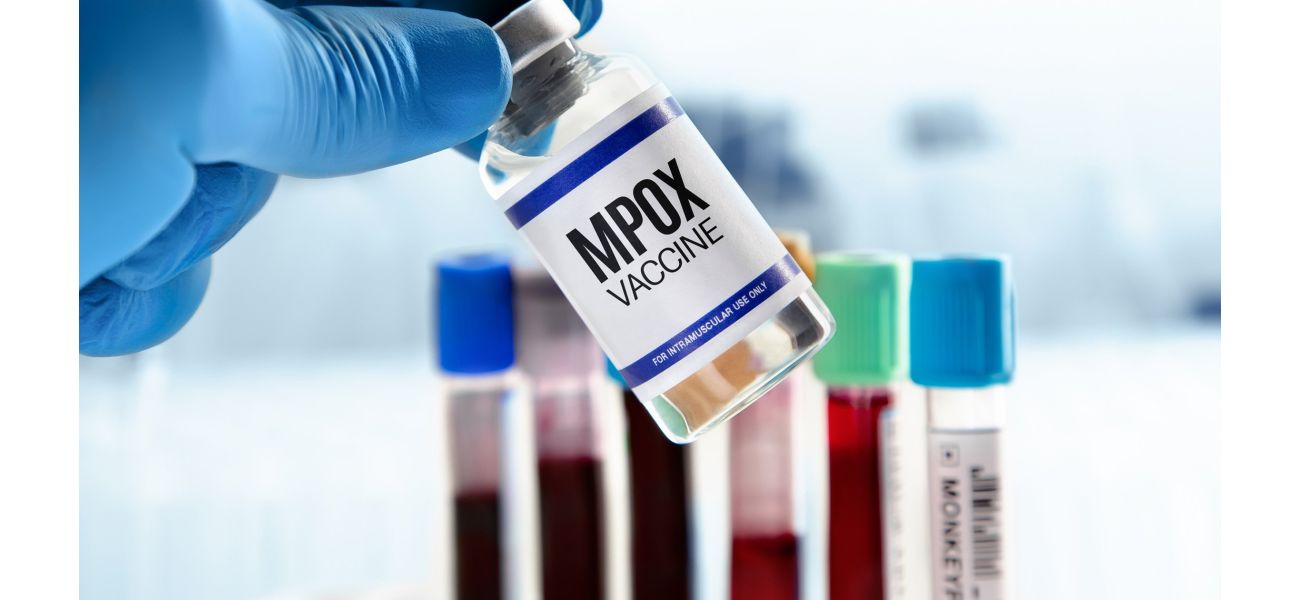Potentially lethal mpox strain discovered in UK for first time.
Someone returned from a trip to Africa and arrived in the UK on October 21.
October 30th 2024.

The person had just returned from a trip to Africa, eager to share their experiences and photos with their loved ones. However, their excitement was quickly overshadowed by the news of the first case of the Clade Ib mpox virus being detected in London. It was a shocking realization that the virus had reached their home country.
The person had been on holiday in Africa and returned to the UK on an overnight flight on October 21st. They didn't think much of it at the time, but over 24 hours later, they started developing flu-like symptoms. By October 24th, they had developed a rash and decided to go to the hospital on October 27th. After being tested, they were sent home to isolate while awaiting the results.
Unfortunately, the rash continued to worsen over the next few days, and on October 30th, they were transferred to the Royal Free Hospital high consequence infectious diseases unit for treatment. The UK Health Security Agency reassured the public that the risk of the Clade Ib mpox strain spreading in the UK was still low.
Efforts were immediately put in place to track down and monitor anyone who may have come into contact with the infected person. So far, fewer than 10 people were being monitored. The Clade Ib mpox strain had been spreading rapidly across the Democratic Republic of Congo, with reported cases in neighboring countries such as Burundi, Rwanda, Uganda, and even as far as Sweden, India and Germany. In early September, more than 600 deaths had been reported, leading the World Health Organisation to declare a public health emergency of international concern.
Professor Susan Hopkins, chief medical adviser at the UKHSA, emphasized the importance of surveillance in detecting this virus. She also revealed that this was the first time the Clade Ib mpox strain had been detected in the UK, although there had been confirmed cases in other countries.
For those wondering about the virus, mpox is a zoonotic disease, meaning it spreads from animals to humans and can also be transmitted between people through close contact. Symptoms may start as a high fever and headache, accompanied by muscle pains, lack of energy, and swollen glands. The most distinctive symptom is a rash that appears 1-5 days after the initial symptoms.
Fortunately, while there is no specific treatment for monkeypox, vaccination against smallpox has proven to be effective. Doctors focus on managing the symptoms and providing supportive care to help the infected person recover. The UKHSA reassured the public that they had an existing stock of mpox vaccines and were in the process of procuring more.
It is important to note that this strain of mpox is different from the Clade II strain that has been circulating in the UK since 2022, primarily among gay, bisexual, and other men who have sex with men. The UKHSA is closely monitoring the situation and will manage the Clade Ib strain as a high consequence infectious disease.
To stay updated on the latest developments, you can follow The Agency on social media or sign up for daily push alerts. The UKHSA also urges anyone with symptoms or concerns to seek medical attention and to practice good hygiene to prevent the spread of the virus. Let us all work together to keep our communities safe and healthy.
The person had been on holiday in Africa and returned to the UK on an overnight flight on October 21st. They didn't think much of it at the time, but over 24 hours later, they started developing flu-like symptoms. By October 24th, they had developed a rash and decided to go to the hospital on October 27th. After being tested, they were sent home to isolate while awaiting the results.
Unfortunately, the rash continued to worsen over the next few days, and on October 30th, they were transferred to the Royal Free Hospital high consequence infectious diseases unit for treatment. The UK Health Security Agency reassured the public that the risk of the Clade Ib mpox strain spreading in the UK was still low.
Efforts were immediately put in place to track down and monitor anyone who may have come into contact with the infected person. So far, fewer than 10 people were being monitored. The Clade Ib mpox strain had been spreading rapidly across the Democratic Republic of Congo, with reported cases in neighboring countries such as Burundi, Rwanda, Uganda, and even as far as Sweden, India and Germany. In early September, more than 600 deaths had been reported, leading the World Health Organisation to declare a public health emergency of international concern.
Professor Susan Hopkins, chief medical adviser at the UKHSA, emphasized the importance of surveillance in detecting this virus. She also revealed that this was the first time the Clade Ib mpox strain had been detected in the UK, although there had been confirmed cases in other countries.
For those wondering about the virus, mpox is a zoonotic disease, meaning it spreads from animals to humans and can also be transmitted between people through close contact. Symptoms may start as a high fever and headache, accompanied by muscle pains, lack of energy, and swollen glands. The most distinctive symptom is a rash that appears 1-5 days after the initial symptoms.
Fortunately, while there is no specific treatment for monkeypox, vaccination against smallpox has proven to be effective. Doctors focus on managing the symptoms and providing supportive care to help the infected person recover. The UKHSA reassured the public that they had an existing stock of mpox vaccines and were in the process of procuring more.
It is important to note that this strain of mpox is different from the Clade II strain that has been circulating in the UK since 2022, primarily among gay, bisexual, and other men who have sex with men. The UKHSA is closely monitoring the situation and will manage the Clade Ib strain as a high consequence infectious disease.
To stay updated on the latest developments, you can follow The Agency on social media or sign up for daily push alerts. The UKHSA also urges anyone with symptoms or concerns to seek medical attention and to practice good hygiene to prevent the spread of the virus. Let us all work together to keep our communities safe and healthy.
[This article has been trending online recently and has been generated with AI. Your feed is customized.]
[Generative AI is experimental.]
0
0
Submit Comment





